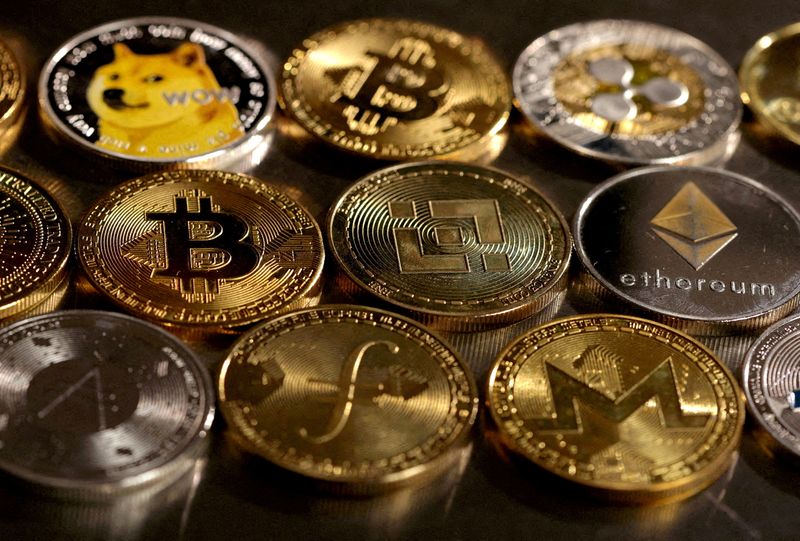By Rupam Jain
NEW DELHI (Reuters) – The Himalayan nation of Bhutan is exploring ways to mine and leverage green cryptocurrencies using hydropower to boost its economy and create jobs to reduce brain drain, the chief executive of its sovereign wealth fund said.
Green cryptocurrencies are digital currencies mined using clean energy resources such as wind, hydro or solar power instead of fossil fuel.
Sandwiched between Asian giants India and China, Bhutan has earned millions of dollars in recent years by investing in some of the world’s most popular cryptocurrencies and used some of its profit to pay government salaries for two years, two senior officials in Thimphu, the capital said.
“We are a nation that runs 100% on hydropower, and every digital coin we mine in Bhutan using hydropower offsets that coin which gets mined using fossil fuels,” said Ujjwal Deep Dahal, the CEO of the fund, Druk Holding and Investments Ltd.
“So a coin mined in Bhutan will contribute to the green economy,” he told Reuters on Tuesday.
Dahal said the fund, which controls Bhutan’s only power generation utility, began adding cryptocurrencies to its portfolio in 2019, seeing virtual currencies as a tactical investment and a gamechanger for the country.
Bhutan is famed for its Gross National Happiness (GNH) index, an economic gauge that incorporates factors ignored by the usual measures of gross domestic product, such as recreation, emotional well-being and sustainability.
It uses hydropower to operate energy-guzzling supercomputers to create digital assets that can be added to the blockchain.
Officials are exploring whether large conglomerates could buy Bhutan’s “green” coins to meet their targets on environmental, social and governance (ESG) norms.
“Bitcoin has not just given more value to hydropower energy, it has also increased access to liquidity in foreign currency,” said Dahal, who added that training Bhutan’s young people in blockchain and AI techniques would fuel jobs.
The nation of about 800,000 is battling an exodus of young, educated people. The government estimates that more than a tenth of its young people sought greener pastures between 2022 and 2023, taking unemployment in that age group to 16.5% in 2024.
Analysts said Bhutan’s ambitious plan to become the capital of green digital currency depends on expanding its hydropower generation to a potential of 33 gigawatts versus existing capacity of about 3.5 gigawatts.
“We have plans to generate 15 gigawatts in the next 10 to 15 years,” Dahal added.
(Reporting by Rupam Jain; Editing by Clarence Fernandez)
Read the full article here


